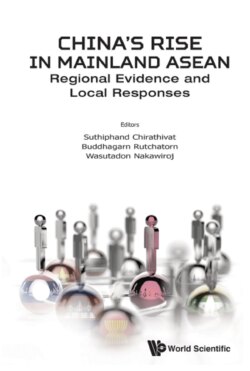Читать книгу China's Rise in Mainland ASEAN - Группа авторов - Страница 19
На сайте Литреса книга снята с продажи.
2.1.Xi Jinping Thought on Socialism with Chinese Characteristics for a New Era
ОглавлениеOn October 24, 2017, the 19th National Congress of the Communist Party of China (CPC) amended its Constitution by adding “Xi Jinping Thought on Socialism with Chinese Characteristics for a New Era” to its main pillars of theory and practice. This addition consequently enshrined the Xi Jinping Thought on par with Marxism–Leninism, Mao Zedong Thought, Deng Xiaoping Theory, The Theory of Three Represents, and The Scientific Outlook on Development (Hongyu, 2017). The last two were presented by Jiang Zemin and Hu Jintao, respectively. In terms of identifying the thought with the specific name of the leader of the People’s Republic of China (PRC), Xi Jinping is evidently the third and follows the ideas put forth by Mao Zedong and Deng Xiaoping. The significance of this amendment was notorious. Mao’s thought provided the main thrust of theory and practice for the consolidation of the Chinese party and the state for many decades. Deng’s ideas guided China in the new scheme of reform and opening up for modernization and economic development from 1978 to this amendment in 2017, i.e. for four decades. The addition, was in a sense, the declaration of a new era to be led by Xi’s ideas and vision. This new era coincided with two upcoming centenary anniversaries, i.e. that of the CPC in 2021 and that of the PRC in 2049. From 2018 to 2049, the duration of time will be roughly three decades.
Xi was elected General Secretary of the party for a second term on October 25, 2017. Moreover, on March 10, 2018, the Constitution of the country was amended to abolish the two-term limit for presidency. The limit had previously been established in the Constitution of 1982 of China, during the period of Deng Xiaoping’s leadership, as a mechanism for preventing tyranny under a one-party system like the Chinese communist regime had chaotically experienced for several decades earlier (Buckley & Wu, 2018). Then, on March 11, 2018, Xi was unanimously elected by the National People’s Congress to a second term as president. The amendment and the reelection made it possible, in constitutional terms at least, for President Xi to hold office indefinitely, even, perhaps, for life. On the same day, he was also elected chairman of the state’s Central Military Commission (Ruwitch, 2018). It may be said that, at present, Xi Jinping has complete control over the party, the military, and the state of China as well as simultaneously providing main ideational, ideological, and discursive formations of the Chinese society. Of course, this “three-in-one leadership” (party–military–state), as Ziang Zemin put it, has been viewed as functionally necessary for the Chinese political system, and thus applied to supreme leaders before Xi (i.e. Ziang Zemin himself and Hu Jintao after Ziang). Given the fact that neither the position of the general secretary of the party nor the chairman of the military has a term limit, its abolition for the presidency provides Xi Jinping with the legitimate possibility to remain as the “three-in-one leader” of China for decades to come (Buckley & Wu, 2018).
